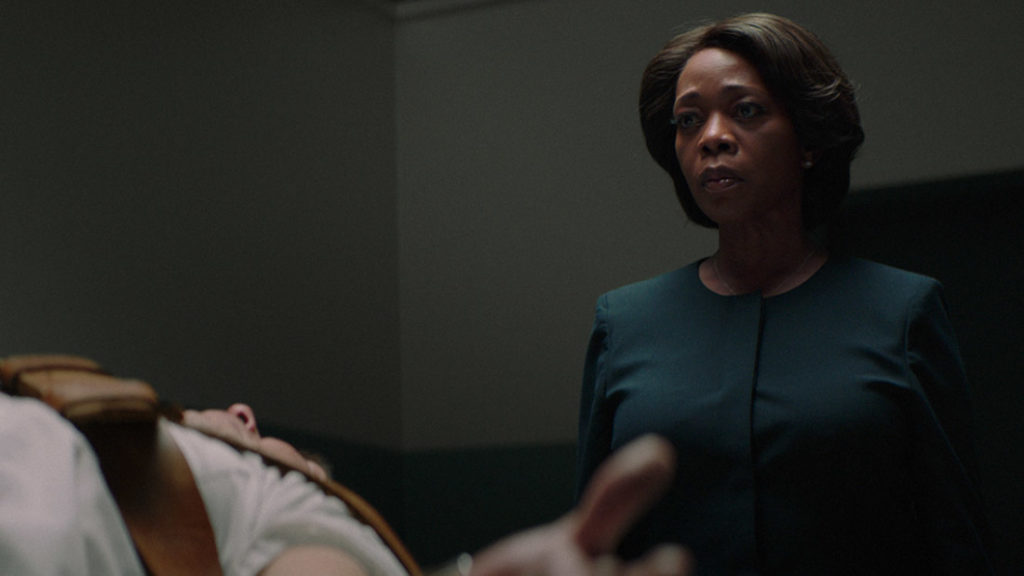Chinonye Chukwu is a filmmaker, educator, and social justice advocate. “Clemency” is her second feature film. The script was a 2017 Athena List winner for best feature script featuring a female protagonist. Chukwu has also been a recipient of the prestigious Princess Grace Award and Princeton Hodder Fellowship. Her debut feature film, “Alaskaland,” has screened globally and was released on several digital and VOD platforms.
“Clemency” will premiere at the 2019 Sundance Film Festival on January 27.
W&H: Describe the film for us in your own words.
CC: “Clemency” observes the psychological and emotional journey of a prison warden as she struggles with the professional responsibility of carrying out death penalty executions.
W&H: What drew you to this story?
CC: On September 21, 2011, a black man named Troy Davis was executed in a Georgia state prison. Leading up to Davis’ death, hundreds of thousands of people protested his execution and urged the Governor to grant him clemency. Among these protesters were a group of retired wardens and directors of corrections from around the country. Their appeal to the Governor spoke to the emotional and psychological consequences that killing Davis, a potentially innocent man, would have on the corrections staff physically responsible for carrying out his execution.
The day after his execution, I was sad, frustrated, and angry, as were so many other people. And then I thought to myself, if so many of us are navigating all of these feelings, what is it like for the corrections staff who have to physically kill Troy Davis? What are the emotional and psychological consequence of the death penalty on those who have to physically carry it out?
W&H: What do you want people to think about when they are leaving the theater?
CC: I want people to be thinking about the ecosystem of humanities tied to not just capital punishment, but incarceration and the prison industrial complex.
W&H: What was the biggest challenge in making the film?
CC: Writing and directing this film was a multi-year soul journey that was transformative and emotionally exhausting. Having to dig deep into the subject matter and the depth of human emotion explored in the film was challenging at times, but absolutely necessary.
W&H: How did you get your film funded? Share some insights into how you got the film made.
CC: After three and a half years of knocking on many, many doors, my amazing producer, Bronwyn Cornelius, connected with private investors who funded the entire film.
W&H: What inspired you to become a filmmaker?
CC: I’ve wanted to be a filmmaker since I was 13 or 14 years old. I’ve always loved making up stories and bringing them to life in my head. Filmmaking was a way for me to escape and live out fantasies and possibilities that seemed so far removed from my real life.
W&H: What’s the best and worst advice you’ve received?
CC: Best advice: Allow yourself to feel through the insecurities, frustrations, anger, and jealousies that are all a natural part of being an artist. Doing so will lessen your ego’s grasp on your life and creative process. But don’t wallow in these feelings. Feel through them and then get back to work!
Worst advice: Try to appear accommodating so you don’t come off as difficult.
W&H: What advice do you have for other female directors?
CC: Be intentional and intersectional in your support of other female directors. Don’t define your joy by your external successes or perceived failures or shortcomings. Our joy is the light inside of us that has nothing to do with anyone else or any accolade. This is our true source of power.
W&H: Name your favorite woman-directed film and why.
CC: Some of my faves are “I Am Not A Witch,” directed by Rungano Nyoni, and “Girlhood,” directed by Céline Sciamma. Not only were these films well executed and narratively engaging, they both spoke to the black girl inside of me.
W&H: It’s been a little over a year since the reckoning in Hollywood and the global film industry began. What differences have you noticed since the #MeToo and #TimesUp movements launched?
CC: I think there’s a bit more gender consciousness in the industry. However, we still have a long way to go in being specific and intentional about including women and girls of color in our advocacy, hiring, and public discourse.







